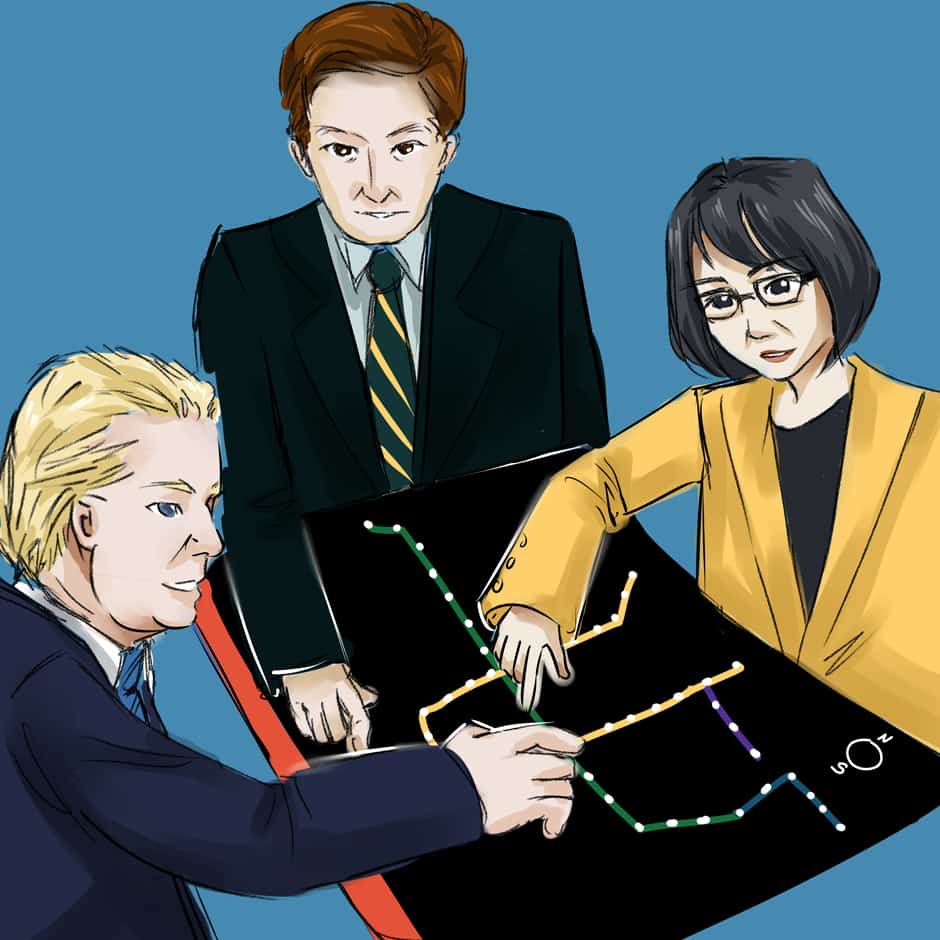The discussion around transit in this city is toxic, but that does not mean it’s not important. As October 27 approaches, Toronto has been consumed by one-liners on LRTs, subways, streetcars, what’s SmartTrack, and what’s plain dumb. Rhetoric–spewing politicians may be losing focus on the real question: how do we move a lot of people to a lot of places quickly and cost-effectively? But we shouldn’t. Eighty-five per cent of undergraduate students commute, whether it is by bike, car, or public transit. So for those of us who don’t walk to campus every day — and good for you for being able to make it to your 9:00 am class — transit is most definitely a top concern in this election.
But a discussion on transit is about more than just infrastructural concerns. Yes, the boom in condo development, the gentrification of neighbourhoods, and all around transit user growth will make any commute more sardine-can-like than normal, however it is often the inability of Toronto to match up to its status, being the fourth-largest city in North America, that frustrates many. Residents note cities like London and Hong Kong and pinpoint their ability to successfully implement a Presto card service equivalent — switching from token fees to pay-per-distance charges — and their shorter wait times, when arguing that Toronto is simply being left behind and distanced from its cosmopolitan neighbours. Ours is a city trying to propel itself to the future; Olivia Chow, John Tory, and Doug Ford should attempt to mimic larger, urban transportation strategies.
Nevertheless, addressing immediate concerns outweigh global positioning. To put it simply, Toronto’s transportation system is a joke, with ever-increasing wait times and numbers of packed streetcars and trains going past you. However, concerns regarding accessibility are also of major concern. There appears to be a growth in the not-in-my-backyard mentality while skimming the candidate’s policies, with many voters dismissing the need for LRT infrastructure and bus service in Scarborough, forgetting that they are also constituents of the city of Toronto and that they too need service as soon as possible. The past few years under Rob Ford have left City Council’s unity in tatters and its transit plans and budget utterly hopeless. And so, inevitably, a discussion on transit becomes a discussion on taxation. It is simply naïve to think that improving transit service won’t cost money.
Olivia Chow, amongst the three front-runners of the 68-people ballot, has proposed to increase the land transfer tax by one per cent which will help in the financing of her Subway Relief Line, and her proposal for an extensive bike network to be established; the increase will also improve bus service, leaving many to dismiss her as a “tax and spend socialist.” A prudent investment, by establishing these services commuters may be able to evenly spread across different transit infrastructures as opposed to all taking the same TTC line.
Alternatively, Tory’s team promises maintenance of the current land transfer tax rates with SmartTrack and proposes to leverage not only existing transit infrastructure, but the city’s existing fiscal infrastructure, too. A service that proposes to extend to areas that have little or no transit lines, including the often-neglected Liberty Village, SmartTrack reaches to peripheral and neighbouring suburbs, too — addressing the divisive nature of the city. However, many are noting the social cost which far exceeds his proposed monetary cost. Execution of SmartTrack is slated to take seven years and cost $8 billion, though it is important to note that experts are yet to approve its feasibility.
It has not yet been confirmed that SmartTrack can be built with absolutely no tunnelling. What then becomes of the west-end corridor of the surface railway that cuts through Mount Dennis and extends to Eglinton West, a region that is primarily residential? But before you go around throwing the ugly E word that is expropriation, what then is the alternate solution?
A growth in the not-in-my-backyard mentality may be guiding many voters to vote strategically, or vote for policies that directly affect them. Coupled with election fatigue and the recent heated mayoral debates, which see no constructive approach, it is important to think about the city you want to live in as opposed to just the train you want to be on.
Aliya Bhatia is a fourth-year student studying international relations and art. She has worked on the Olivia Chow mayoral campaign.


